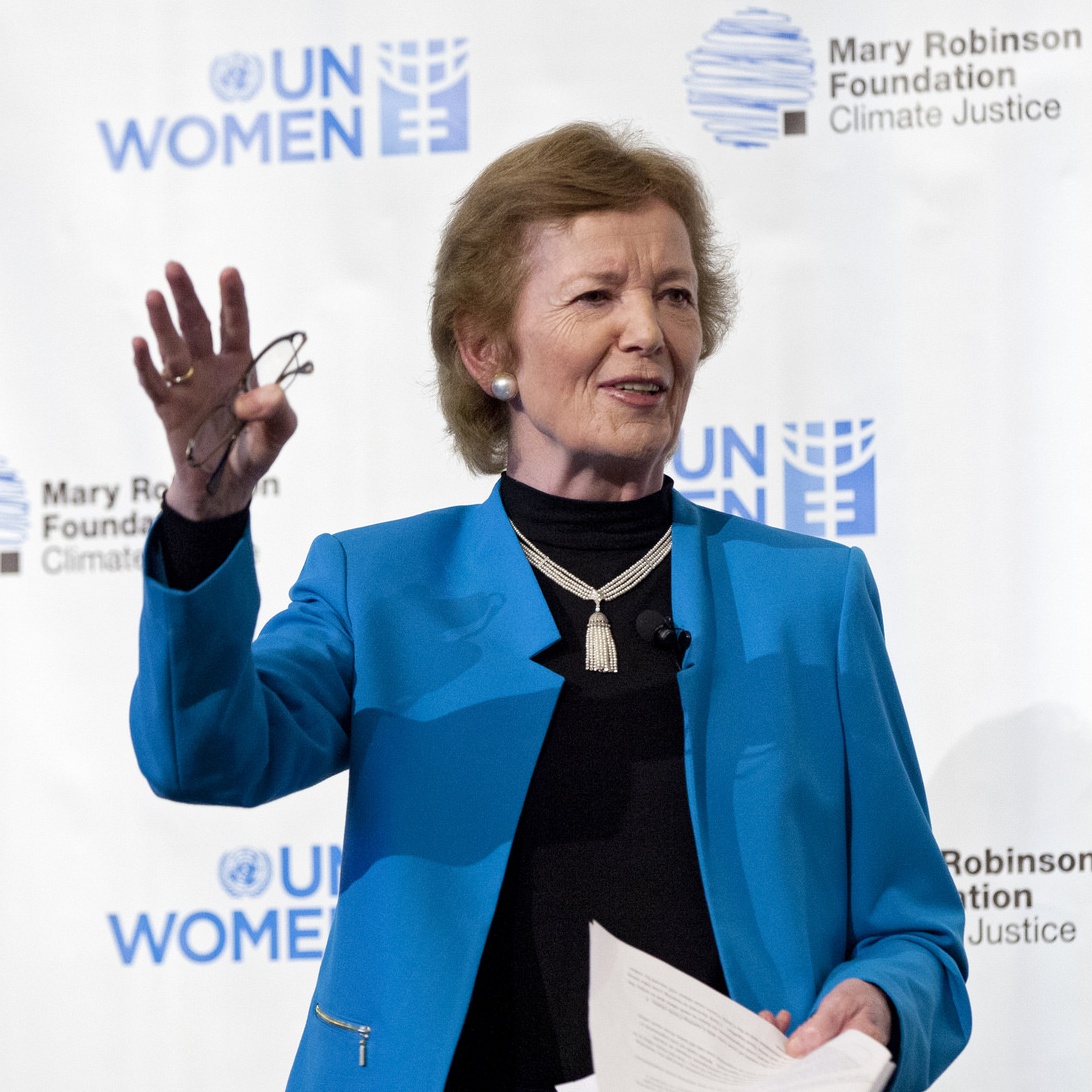Call for an end to ‘business as usual’ option on climate
Kieran Cooke
Mary Robinson, the UN Secretary General’s special envoy on climate change, has warned that the whole issue of climate is much too important to be left to governments and their leaders.
Robinson, who was the first woman president of Ireland and is now head of the MRFCJ foundation promoting climate justice, said it is a battle for all of us − and that now is the time for action, not for the continuation of business as usual.
Speaking at the Grantham Institute for Climate Change at Imperial College, London, Robinson said that the UN conference on climate change in Paris at the end of this year must achieve concrete, ambitious results.
Transformation
“Now is not the moment to manage expectations or get cold feet – 2015 is the moment to catalyse a transformation,” she said.
She also called for a more unified approach to global action on the interlinked issues of development, climate change and human rights.
“Till very recently,” she said, “climate change was thought of in terms of the science and the environment – not as a human rights and sustainable development issue. Now governments and the UN are changing their approach.”
“This is a serious moment – we must have funds to build a new kind of economy”
Many countries struggling to develop are having to spend enormous amounts on adaptation measures in relation to climate change, she said. It means that countries such as the Philippines − hit by typhoons and other disasters − are spending millions just to stand still.
“We have to change course,” Robinson argued. “This is a serious moment – we must have funds to build a new kind of economy.”
Robinson said that what she termed the “business as usual” model of development “has resulted in dangerous levels of pollution, caused climate change and biodiversity loss, and has failed to eradicate poverty and inequality”.
All countries, she said, should make a transition towards a zero-carbon economy − which is ultimately the key to long-term prosperity, but is a tremendous challenge, particularly for developing countries.
Alternative way
“No country has developed without fossil fuels to date, so co-operation is key to providing the technology, finance, skills and systems to create an alternative way of developing,” she said.
Robinson also expressed concern that the International Monetary Fund is still focusing on economic growth and not on climate change. It must alter its outlook, she said.
In her UN role, Robinson will be at the centre of a series of big international meetings on climate change and development issues this year.
A conference in July in Addis Ababa, Ethiopia, will urge countries to commit more funds to climate finance, and to institutions such as the Green Climate Fund.
In September, the UN General Assembly is due to adopt a post-2015 strategy for achieving various development goals around the world.
And in December, in Paris, a new global climate change agreement is due to be worked out, under the auspices of the UN Framework Convention on Climate Change.

